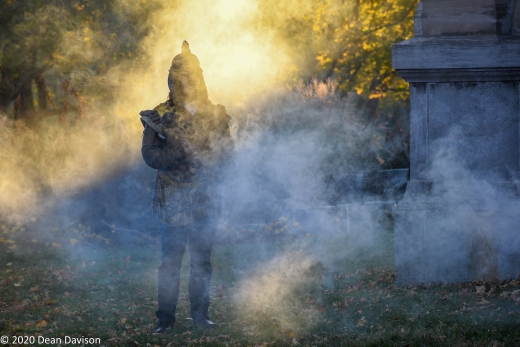
Elizabeth Shelton, the executive director of United Way of Southeast Missouri, was working from home on a Friday in late May when a nasty ghost appeared. The apparition arrived as a fake Facebook profile named Rachel Steenberg. Rachel’s post ridiculed George Floyd with a disgusting racist meme.
Rachel, the ghost, claimed to work for Elizabeth at the United Way.
Rachel wasn’t real. But the threat to United Way was very real.
“We have a small team of just six, so we know everyone,” Elizabeth told me. “This person never worked for us or any United Way, and we still aren’t certain that she actually exists.”
Even so, waves of condemnation poured over Elizabeth, her team, the Cape Girardeau community and United Way. First came the Facebook comments and messages. Then the emails, Instagram posts and tweets arrived in torrents.
“Fortunately, one of my local board members spotted that ugly post early in the morning, and sent me a text long before the Google alert arrived. We spent about ten minutes crafting our message, then sprang into action.”
Elizabeth and the board member both have crisis and public relations experience, so they moved quickly to mitigate the damage:
- Responded within minutes with an online statement negating the post, denying that Rachel was an employee, and affirming United Way’s inclusiveness.
- Engaged the local United Way team to answer phones and respond online, assigning roles and platforms.
- Alerted the local United Way Board and included messaging and talking points.
- Communicated with United Way Worldwide staff who contacted Facebook and provided additional support at the corporate level.
- Delivered a simple, clear and consistent message:
- This person has never worked for United Way.
- Her post is horrible, and we would never approve of such behavior. United Way of Southeast Missouri is an inclusive organization.
- Our hearts are with George Floyd’s family and those who mourn his death.
- Please help us spread this message, so we can continue to help our neighbors.
Their response on Facebook generated 1,500 comments and 2,900 shares. The first day, Elizabeth personally replied to more than 100 emails while her team answered 100 phone calls an hour. They continued to reply to emails and posts throughout the weekend and the following Monday. They didn’t have a chance to get back to their regular jobs until inquiries finally slowed later in the week.
A slower response would have been even more devastating.
Most critics quickly realized what happened and embraced the United Way with messages like these:
- “Very professional and classy response.”
- “That was great. I read it twice because it was so well said.”
- “Thank you, UW SE Missouri team, for your quick leadership on this.”
- “Rest assured us locals know they would not stand to have someone of this nature on their team.”
Still, the experience distracted the United Way of Southeast Missouri for weeks as they responded to comments and repaired the damage. The comments now have slowed to a trickle, only one or two per month.
You can take important lessons from Elizabeth’s ghostly experience:
- Create a crisis plan. If you don’t know how, check online resources for a basic framework. Even better, get help from an expert.
- Engage experts. If you have a communications person on staff, make sure they are savvy about crisis communications and social media. If not, recruit someone on your board or ask for volunteer assistance.
- Stay on message. There’s no room for improv in moments of crisis. While they wanted to be responsive to each caller’s concern, they had to stick to their message, keep moving and complete their conversations quickly.
- Move fast. When it’s clear you are under attack, you have to respond quickly. The damage would have been even more devastating if they had not spotted the post early and moved within minutes. Taking a day or two to plan a response could have been fatal.
- Ask critics for viral help. Hate spreads exponentially on social media. Ask critics to share your response to stop the spread of viral ugliness. Elizabeth and the team went a step further by asking for positive Google Reviews to repair the reputational damage.
- Strengthen your diversity and inclusion action plan. Be intentional about recruiting a diverse staff, board and volunteers. Articulate what you stand for and what you won’t stand for.
Elizabeth Shelton says she has found at least a few silver linings from her encounter with the Facebook ghost.
“We have a lot more social media followers, and we even got some donations in direct response to this. But more importantly, it is reassuring that people in the Cape Girardeau area rose up to support us,” she added. “They know that United Way of Southeast Missouri works hard every day to make this community stronger for everyone.”
The United Way still doesn’t know who the ghost actually is or why it targeted them. They probably never will.
You may not think ghosts are real, but this incident proves social media ghosts can cause you real pain. You and your organization must prepare for this harsh reality. Please let me know if I can help you prepare for this or other crisis threats.
